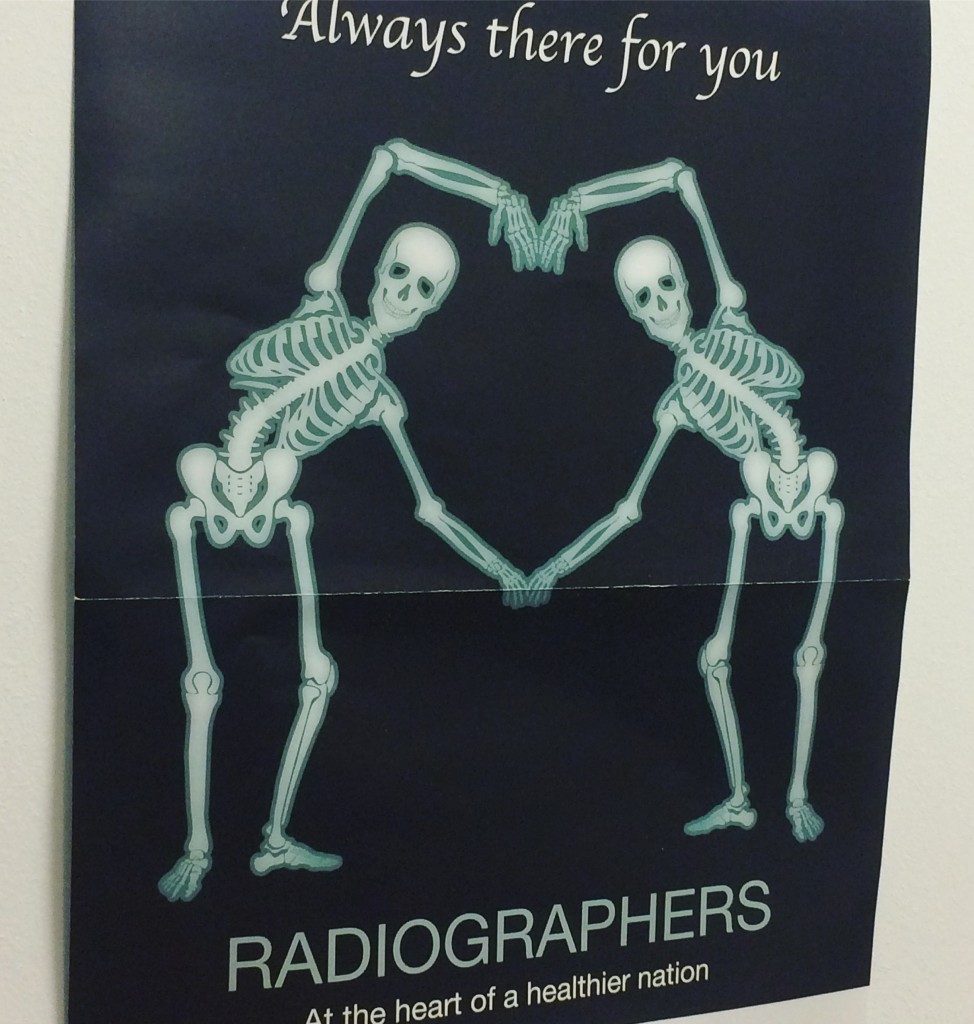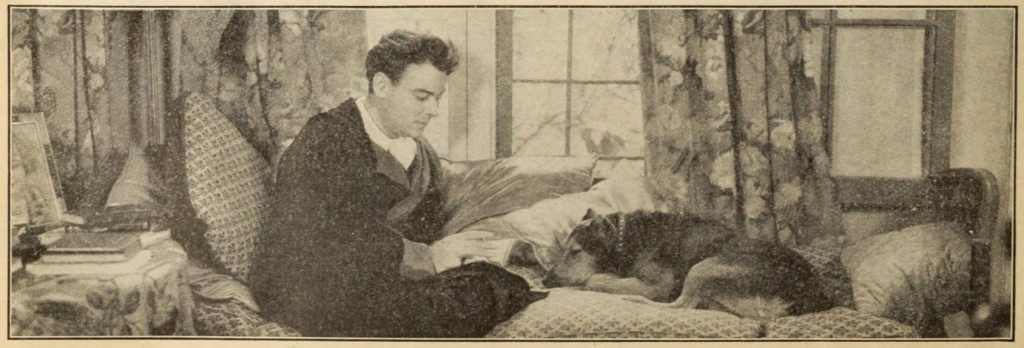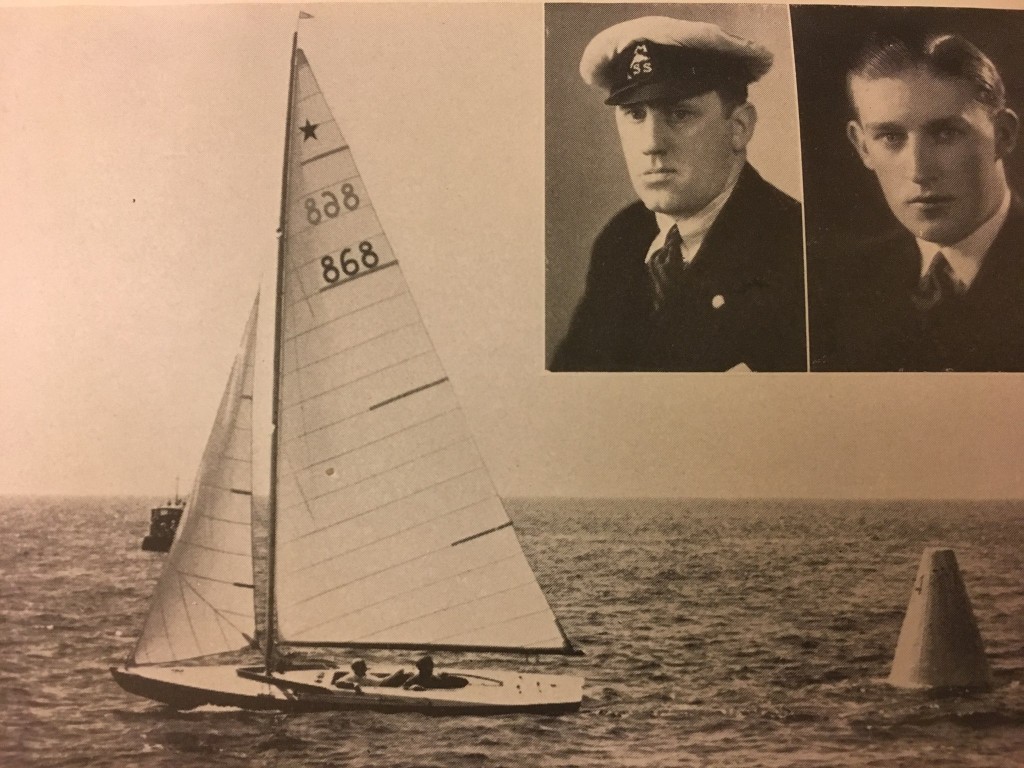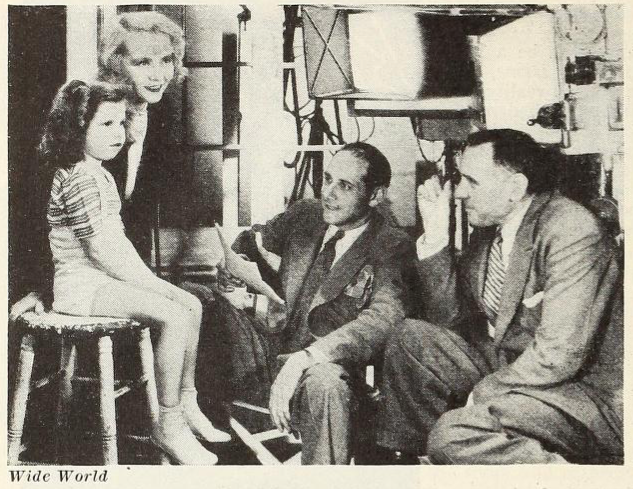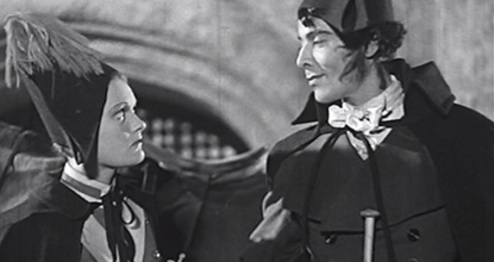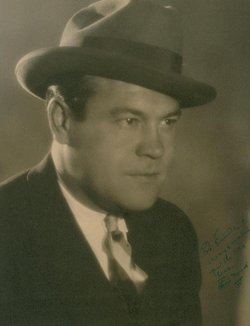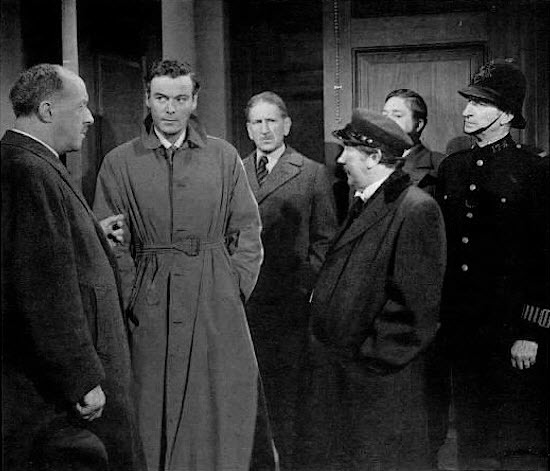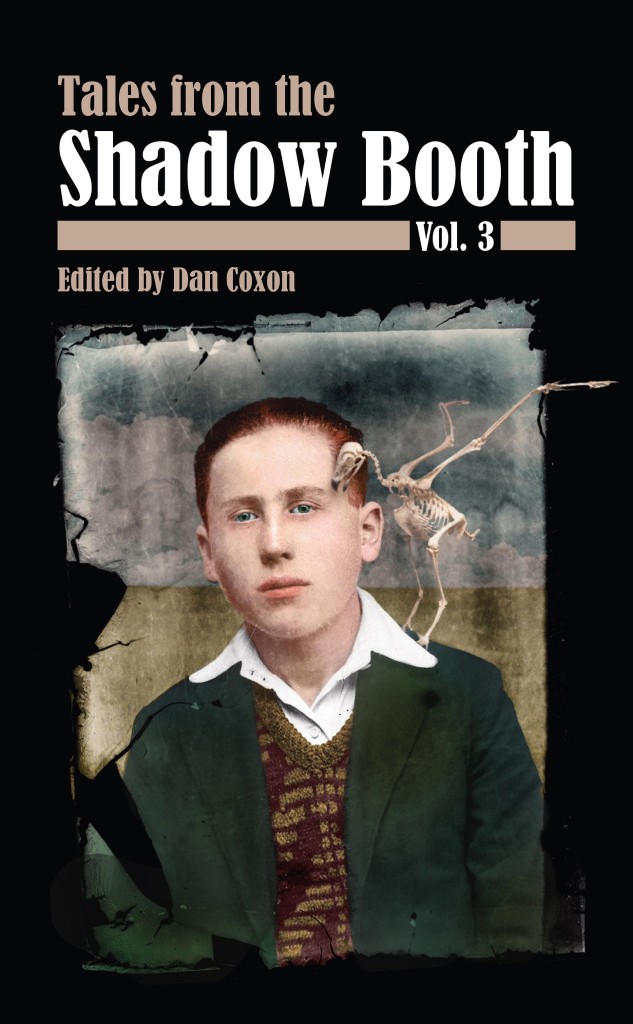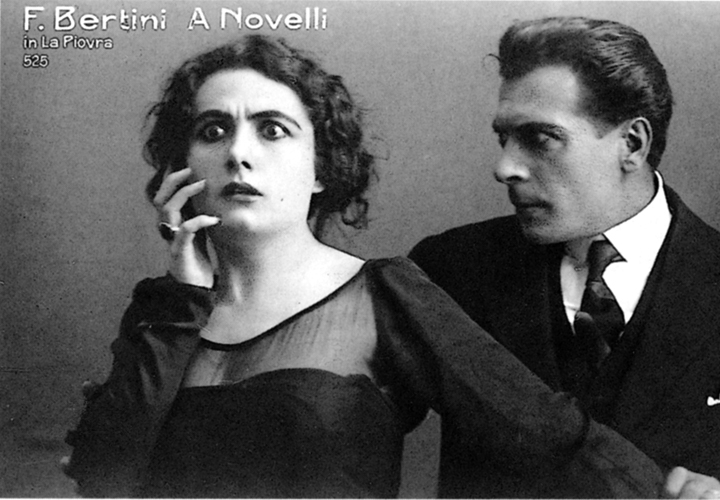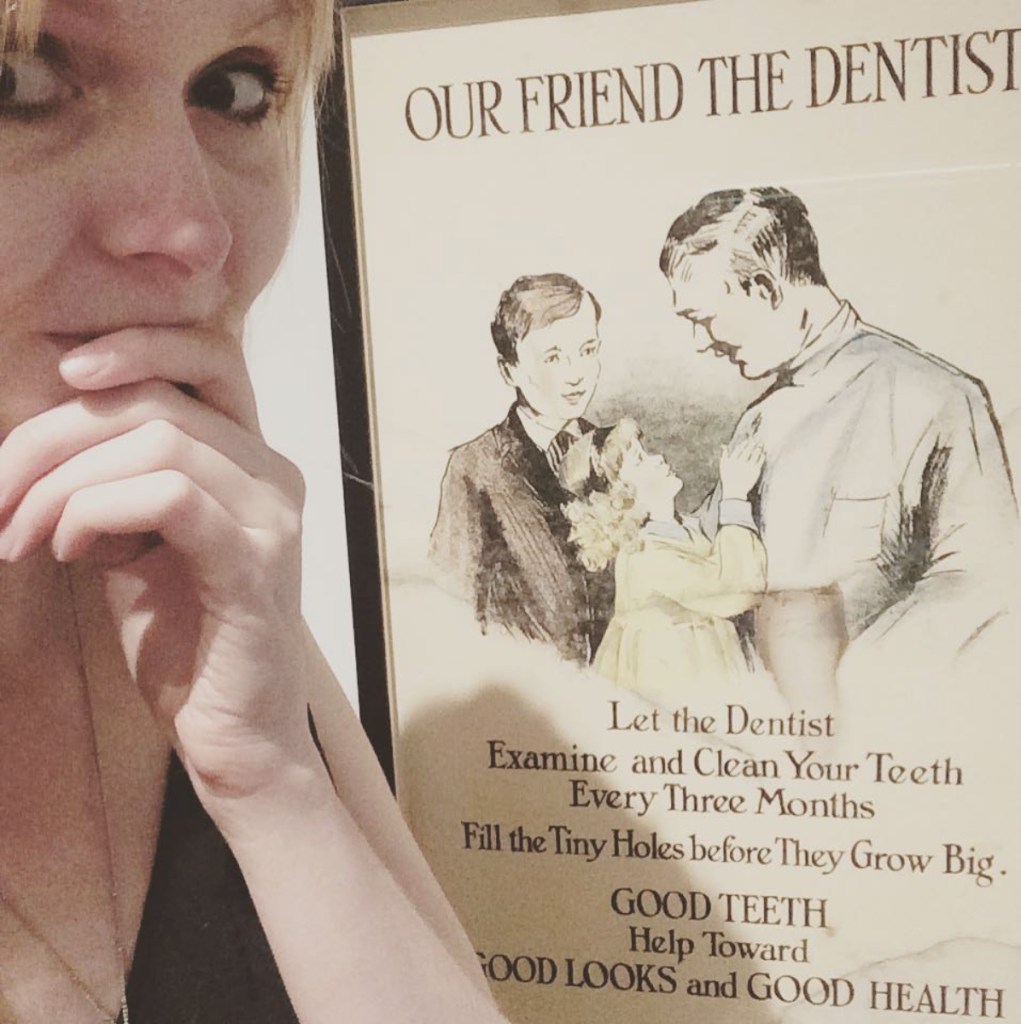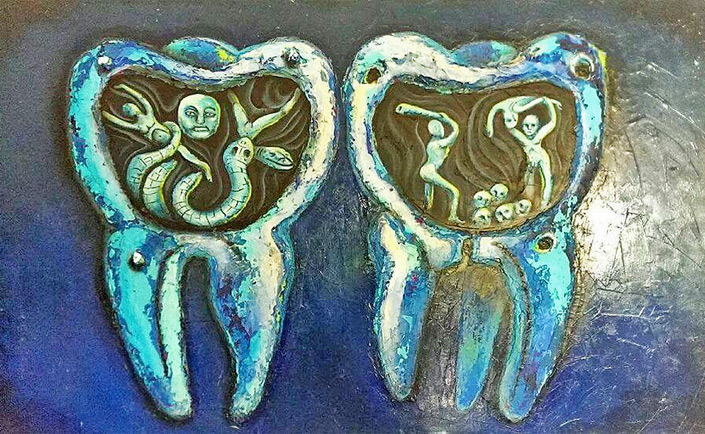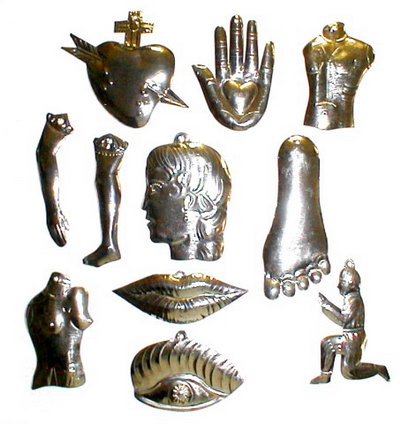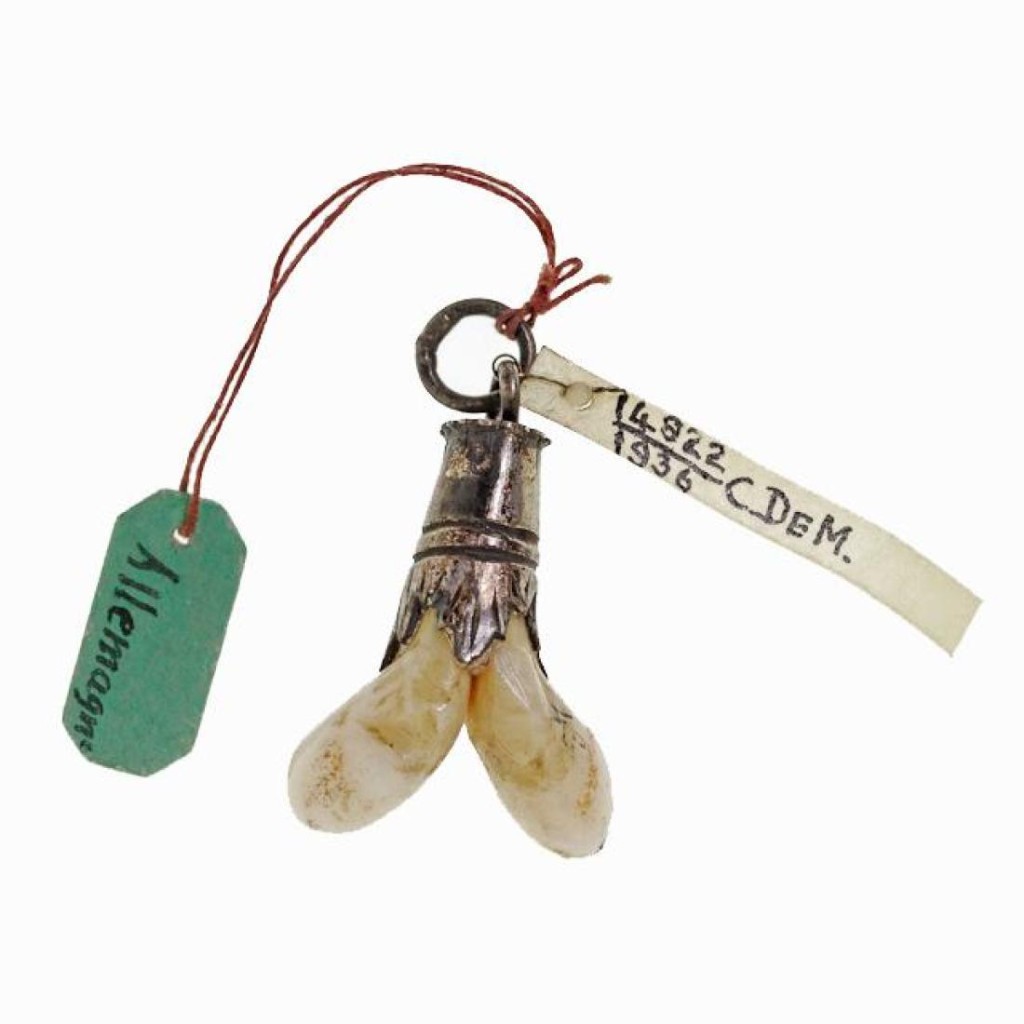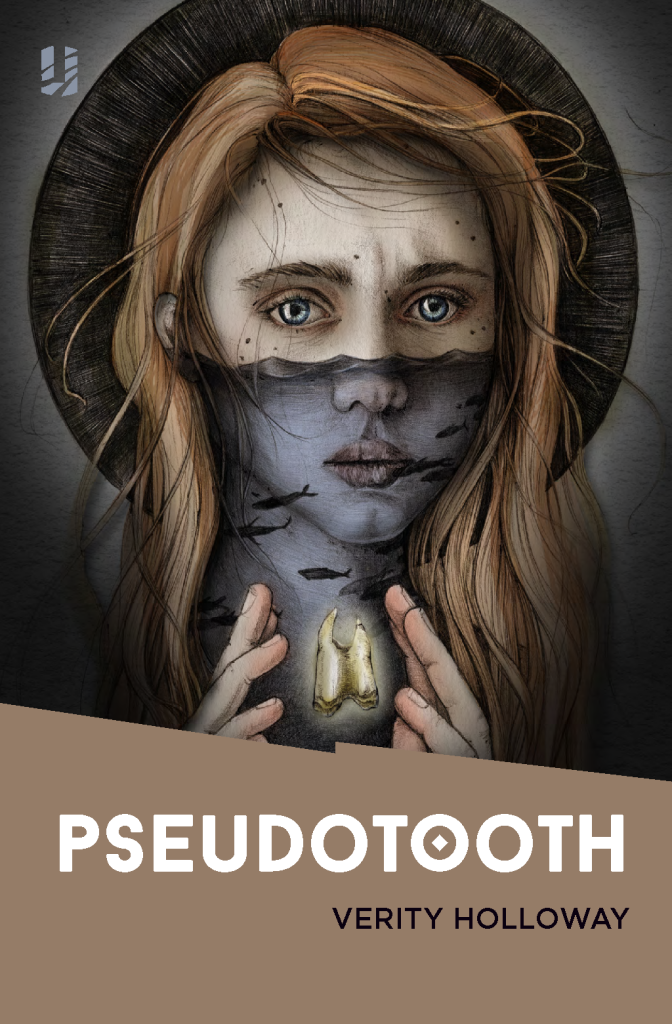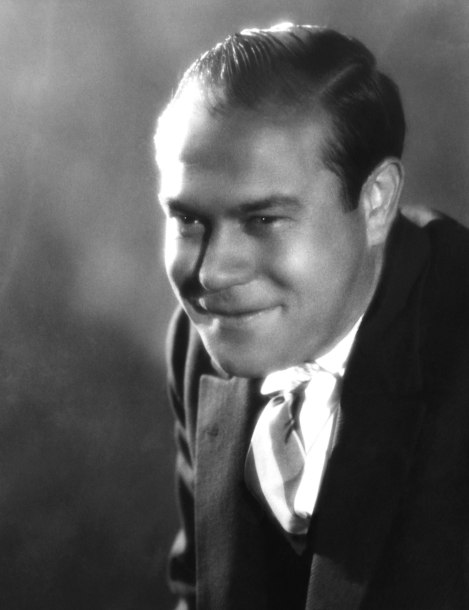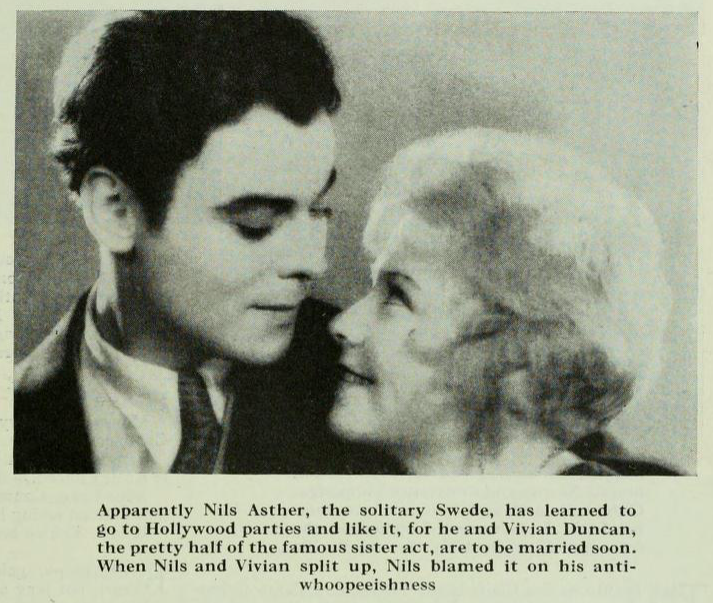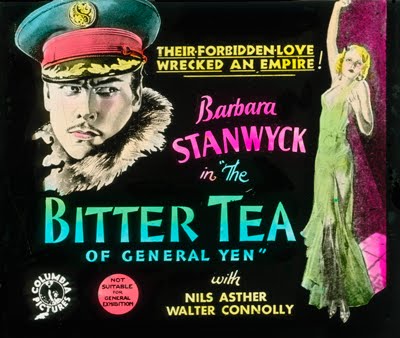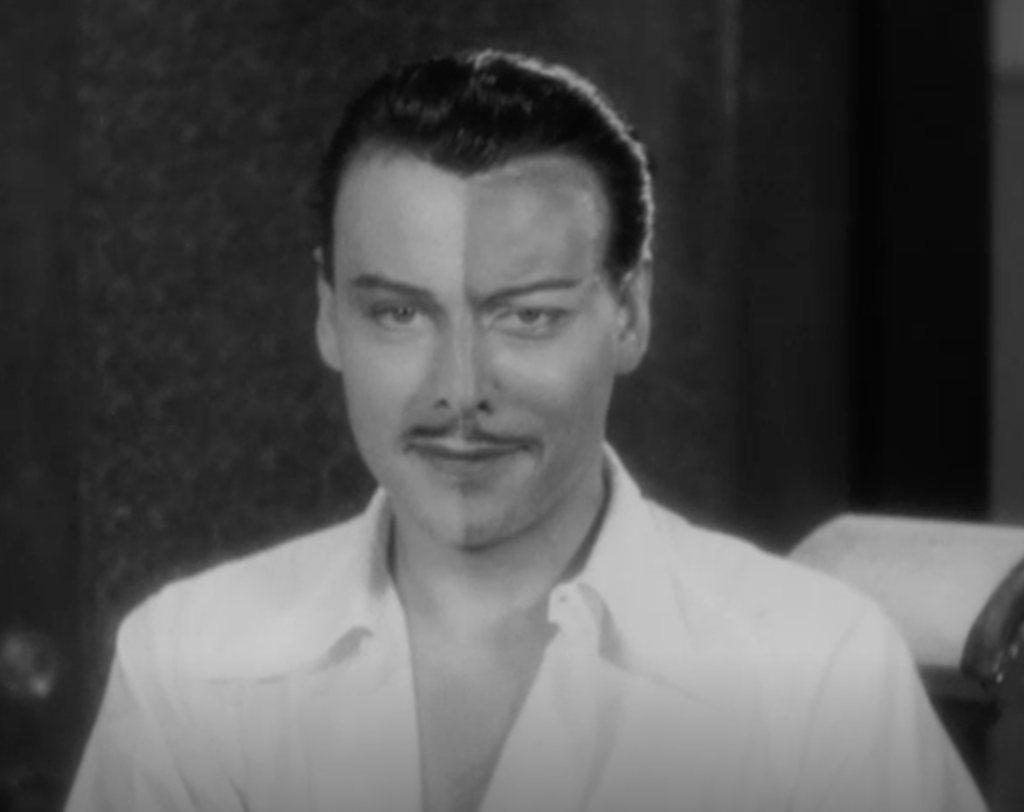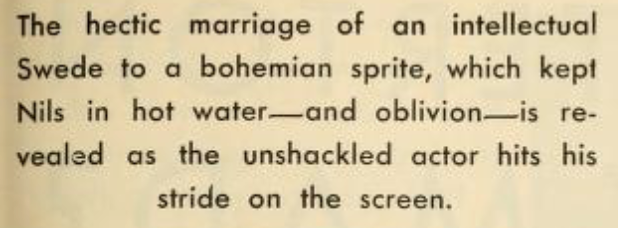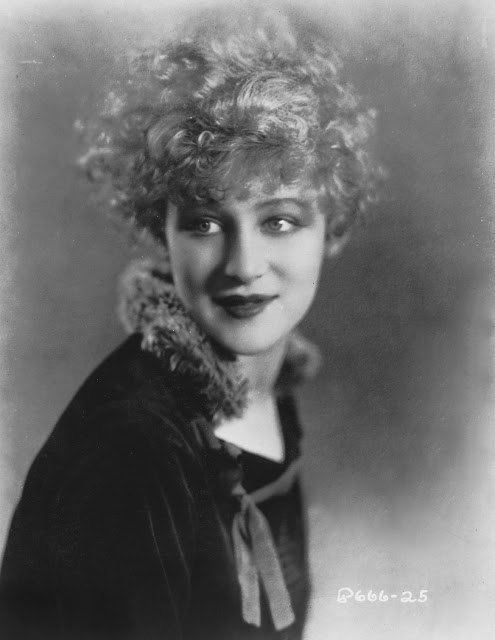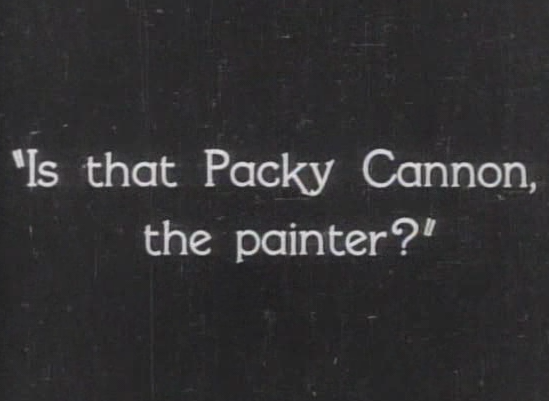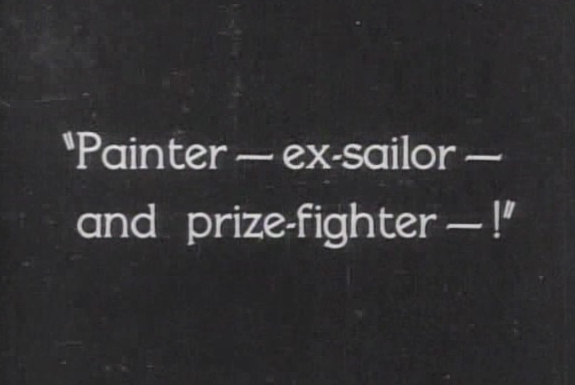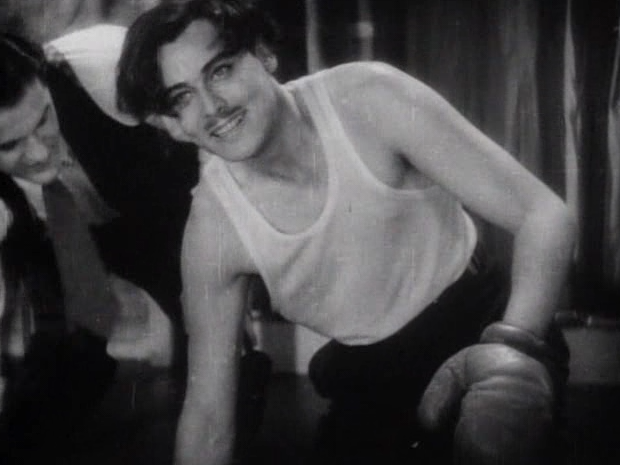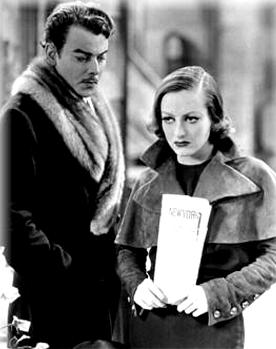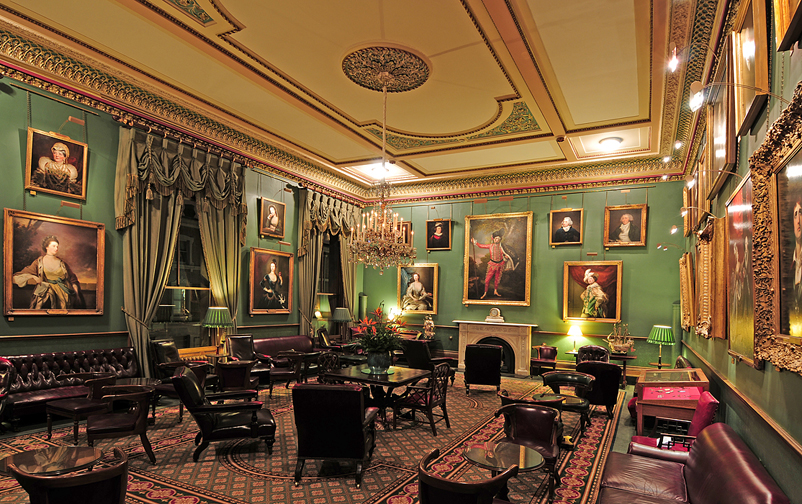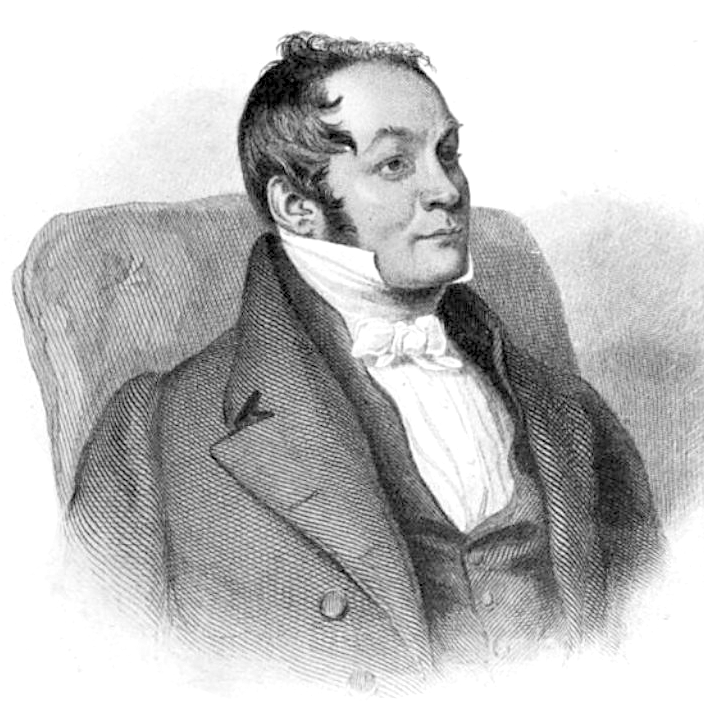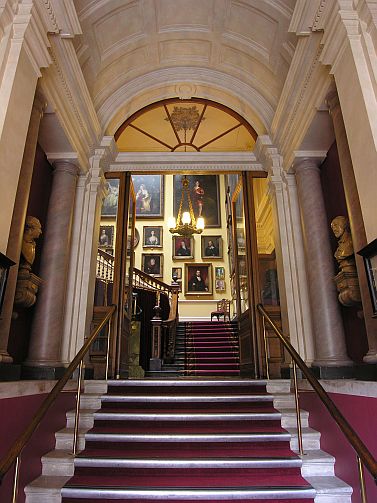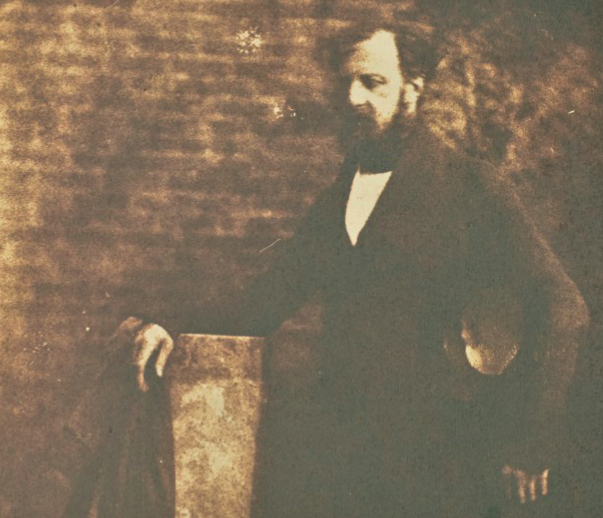I’m on Breaking The Glass Slipper today, talking about why I love the Gothic, what needs to be done about the Chosen One trope, and the ghost I shared a married quarter with.
What’s it like to have open heart surgery?
I haven’t blogged much lately, have I? For a change, I have a solid excuse…
I had open heart surgery. Planned, elective, but still an enormous ordeal. I’m almost eight weeks post-surgery right now, and I’ve only just summoned the energy to write anything about it beyond the odd tweet.
Before I decided to get on the waiting list, I naturally went looking for people’s experiences. And though I found a few exceptionally lovely bloggers who held my hand and kept me going, there wasn’t that much out there from a young woman’s perspective. And sure, it’s a heart, we’ve all got hearts, but when you’re facing something so massive, so life-changing, it helps to be able to see other people like yourself who’ve been through the same and come out fighting.
If you Google ‘cardiac patient’, you’ll see plenty of this guy:
 I’m 32 and I don’t own a pair of overalls. So I wanted to write a detailed guide from my perspective. I can’t promise it will be interesting to anyone with a healthy heart, but the one thing I wanted most of all before my surgery was someone to talk me through the nitty gritty so I’d go in feeling as informed as possible. Not everyone feels that way. One lady I met in the pre-admission clinic didn’t even want to know the name of her procedure, and that’s absolutely fine. Give this a miss if that sounds like you.
I’m 32 and I don’t own a pair of overalls. So I wanted to write a detailed guide from my perspective. I can’t promise it will be interesting to anyone with a healthy heart, but the one thing I wanted most of all before my surgery was someone to talk me through the nitty gritty so I’d go in feeling as informed as possible. Not everyone feels that way. One lady I met in the pre-admission clinic didn’t even want to know the name of her procedure, and that’s absolutely fine. Give this a miss if that sounds like you.
Obviously, this is my experience, not yours. I was told about countless things I needed to prepare myself for, and then they never happened. So just keep that in mind.
Regulars will know I have a connective tissue disorder called Marfan Syndrome. Put simply, Marfans means the tissue holding your body together is too elastic to do the job effectively. For Marfs, the whole body is delicate, but the heart most of all. People with Marfans are at high risk for aneurysms, and since I was a teenager I’ve been monitored with an annual MRI as my aortic root (the big part at the top of the heart) has been slowly getting larger and weaker. By age 31, my aortic root measured 4.5cm, double the healthy average. This is the measurement where surgeons recommend Marfan patients think about elective aortic root replacement.
I knew it was coming, but it was still a sickening surprise when my cardiologist referred me to a surgeon for ‘a chat’. It was even more surprising when a nurse took blood for a transfusion, measured me for DVT stockings, and handed me a consent form.
By the time the nurse was finished with me, I was dizzy with anxiety. With the consent form in my hand, I was ushered in to see my surgeon. It was all going so fast. I’d always told myself the surgery was years off. I had no symptoms. I was pretty fit for someone with my condition. I had DMs and a leather jacket, I didn’t need any bloody DVT stockings! Except I did. I actually did.
My surgeon was Samer Nashef at Royal Papworth. I liked him straight away. I’ve never felt comfortable with doctors who are evasive or try to make things fluffy for fear of overwhelming you, and Mr Nashef was willing to take me through everything in a matter-of-fact way that kept me calm and well-informed. I needed the David Procedure, which you can read about here. My heart would be ‘switched off’ and the enlarged section of my aorta would be removed and replaced with a synthetic tube. It would take around five hours, with thirteen weeks of recovery. “It’s huge,” the surgeon said. But I had youth on my side, and the best team in the country.
The choice was presented to me. I could carry on living my life, put off the surgery for a few years, but there would come a point where the risk of waiting outweighed the risk of the procedure, and that point would likely come soon. Some patients are lucky, some are not.
I went home to think about it.
*
From that day on, everything was about surgery. I couldn’t focus on anything else. Every ache and pain had me fighting back panic. I’d look at my chest in the mirror and envision the gnarliest possible scar. Worse, I had no instincts. I went back and forth on all the options, spoke to fellow patients, friends, family, read all I could on the subject, but still it seemed unreal. If the surgeon had simply said “Now is the time” it would all be so much less agonising. If I felt ill, even. In the end, I phoned Mr Nashef’s secretary partly to put an end to the tension. The waiting list was sixteen weeks, but at least I was on it.
Here follows a musical interlude lasting nine. whole. months.
At the six month mark I got the call to come into Papworth for a pre-admission clinic. There I was weighed, measured for bloody DVT stockings again, had blood taken, MRSA swabs, stood for a chest x-ray, and spoke to my surgical team including the anaesthetist about what to expect. This took up most of a day, so when it’s your turn be sure to take snacks and a book. You’ll be presented with tubes of antiseptic gel to squeeze into your nostrils twice daily, and an equally appetising bodywash for the night before your procedure. You’ll be given a lot of paperwork, too, so it helps to have a folder to keep it all safe. Some of these papers are guides for family, including vital rules about visiting. The importance of Sniffling Cousin Jimmy staying away before and after surgery cannot be overstated. For two weeks before surgery, you can’t take supplements, and that includes vitamin C. Anyone with a cold needs booting out of the nearest window.
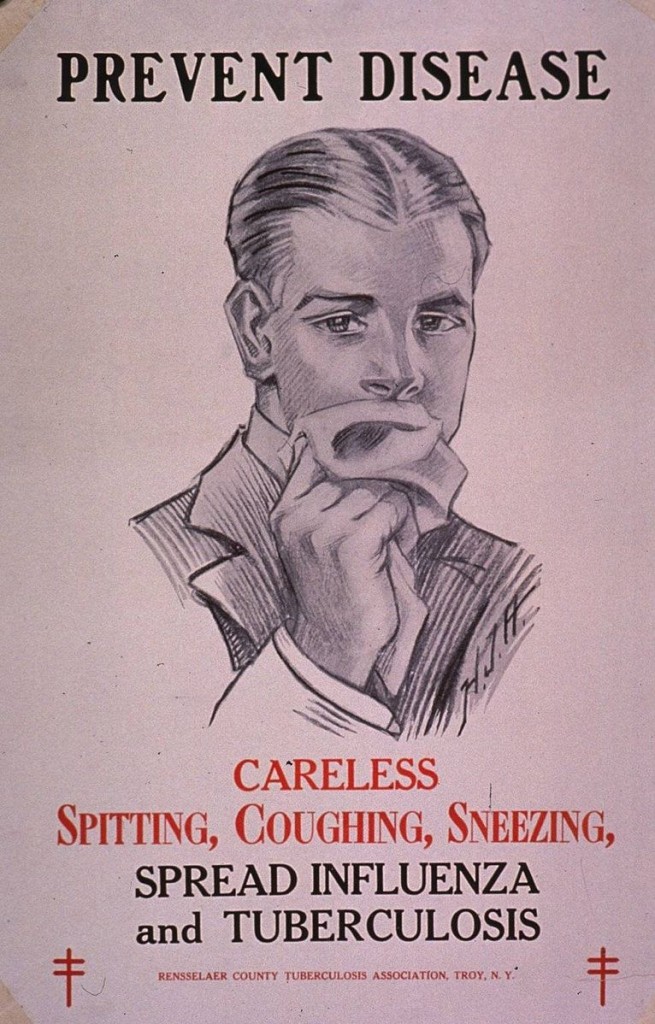 There’s a hell of a lot to take in at this stage, and even more to plan for. Prepare thyself. You’ll need to put a lot of thought into the reality of your recovery and spend a fair bit of money to make it as easy on yourself as possible. Remember, you’ll be working with a broken sternum. For a long time, you’ll be so tired even drinking a cup of tea will send you to sleep. How will you feed yourself? How will you wash? What will happen when your enormous husky wants a cuddle?
There’s a hell of a lot to take in at this stage, and even more to plan for. Prepare thyself. You’ll need to put a lot of thought into the reality of your recovery and spend a fair bit of money to make it as easy on yourself as possible. Remember, you’ll be working with a broken sternum. For a long time, you’ll be so tired even drinking a cup of tea will send you to sleep. How will you feed yourself? How will you wash? What will happen when your enormous husky wants a cuddle?
I needed, at the very least…
A tall, high-backed chair that could be moved from room to room
A recliner chair
A foam wedge for sleeping sitting up
Loads of button-up shirts, pyjamas and dresses
A single bed downstairs near the bathroom
A post-surgery bra
Cushions to protect my sternum when walking or using seatbelts
A travel bag for hospital with everything I needed, but nothing I’d mind losing
And the small matter of someone to look after me 24-hours a day for untold weeks
It turned out I had plenty of time to arrange all these things, because my surgery date was cancelled twice. Can’t be helped, but ugh… it was harsh. The first time, I was all set to go into theatre when two emergencies were blue-lighted in and I had to peel out of my paper knickers and go home. What do I do with myself now, I wondered? Getting back in the car that night was overwhelmingly strange after almost a year of revving myself up for the biggest physical challenge of my life. So I ordered a pizza and let my brain just shut down.
Depression is a major consideration when you’re going into a battle like open heart surgery. When you can’t make plans, can’t enjoy the present, or control your own future, you can’t help but go a little mad. I went numb for two weeks. I couldn’t read books or weather trivial daily annoyances. I’d wake up shouting. When my next date came a couple of months later, I promptly contracted a wisdom tooth infection. The mouth is an infection superhighway to the heart, so my surgical team told me to sit tight and get well. It was bad luck, putting it mildly. I felt like The Girl Who Cried Surgery.
My third date was April Fool’s Day. Ha. Ha! I’d believe it when I woke up on a ventilator. So when I rocked up to Papworth with my bag and my paperwork, part of me was coolly convinced I was about to go home again.
To be continued. Because I’m knackered.
The Fool’s Way VI: Goodbye To All That
This instalment of The Fool’s Way, my summary of silver screen star Nils Asther’s memoirs, isn’t cheerful reading. Just so you’re forewarned. You can catch up on the previous part here.
“Interviewing Nils is like interviewing twins,” wrote Myrtle Gebhart. “He delights in baffling you with his dual personalities.”
Reading his memoirs, you get that feeling. There’s the carefree Nils who’ll try anything once, especially if it’s risky, and then there’s his paranoid, self-loathing double. I don’t know exactly when he wrote his memoirs. They feel bitty, like he chipped away at them over the years and abandoned them a handful of times. But what’s crucial is that they weren’t published in his lifetime, and they were not published with his consent. The finished product contains a long post-script by his carers about living with Nils in the 1980s and all the trouble he got into (which I’ll talk about later, because oh boy it’s an epic). It feels like an intrusion. We see a deeply anxious man who feels he never had agency over his own life. Someone who longs for friendship but cannot imagine anyone seeing past his inherent brokenness. He worries himself into a frenzy over the things he had already written about with nonchalance. So why not destroy the manuscript? Did he need to write himself into existence, in his own words, even if those words scared him?
I’d love to ask, but I can only imagine him lighting a cigarette and slinking off.
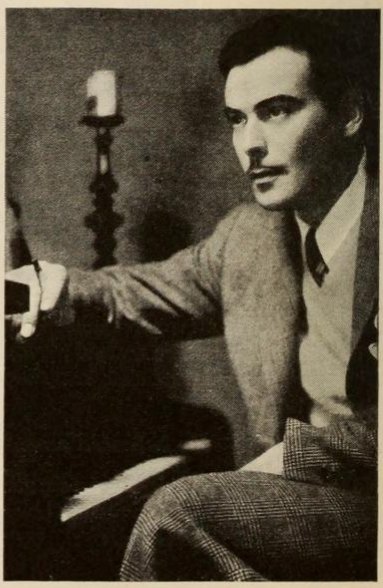 Back to the 1930s. General Yen had put him back in the public eye, especially in the eyes of young women who were the principal movie-goers. But Nils was still on thin ice, not that you would know from his interview style. “I don’t speak English”. “I have six women – a whole harem – in my home”. Studio embargo on interviews? He’d invite journalists personally. What about the fine MGM movies of his past? They were all dreck. Wondering why his house was so far away from all the other stars’? He was planning to live in the woods and bathe in the streams like Tarzan. Try and find him then, suckers.
Back to the 1930s. General Yen had put him back in the public eye, especially in the eyes of young women who were the principal movie-goers. But Nils was still on thin ice, not that you would know from his interview style. “I don’t speak English”. “I have six women – a whole harem – in my home”. Studio embargo on interviews? He’d invite journalists personally. What about the fine MGM movies of his past? They were all dreck. Wondering why his house was so far away from all the other stars’? He was planning to live in the woods and bathe in the streams like Tarzan. Try and find him then, suckers.
He could never resist throwing stones at the wasp’s nest.
But the journalists who met him were charmed. He was a wry and suave host, and his ‘difficult’ nature was a breath of fresh air in the bell jar of Hollywood. Something delightful must have been going on in the young divorcee’s private life, they speculated, but they were dealing with an actor. By 1933, Nils’ obsession with adoption had mutated into something sadder. He convinced himself that somewhere his ‘real’ family were going on with their lives, glad to be shot of him. At night, he suffered panic attacks. Something was wrong with him, he told himself. Perhaps his real parents were crazy. Perhaps they knew he’d go the same way. In a weird coincidence, half-brother Gunnar Asther was in LA competing as a sailor in the 1932 Summer Olympics. All those long summer days on Evil Anton’s boats paid off, and he took a bronze medal for Sweden. Whether Gunnar looked up Nils while he was there, I don’t know. Considering Anton deliberately excluded Nils from those father-son boating trips, the whole thing would have been a painful spectacle.
Hilda, too, had come over from Sweden to inspect her son’s bride. She knew a miserable marriage when she saw one. At the divorce hearing, Vivian complained that her mother-in-law called her rude names in Swedish, but Hilda, like her son, could be cool and imperious to strangers. She was the same way with him; further proof, in his mind, that she wasn’t his biological mother despite their shared, distinctive beauty.
Bad marriages screw people up. They screw children up, especially. When little Evelyn was put on the stage in frilly skirts and tube socks, Nils was upset. Evelyn was being manoeuvred by movie professionals while too young to understand what she was giving up, like her vaudeville dolly mother before her. Like him.
Hollywood was a nightmare merry-go-round, and there was no getting off.
In typical style, Nils shacked up with a 22-year-old Korean dental student straight after the divorce. The lad was promptly arrested for trying to forge Nils’ signature. Nils had a habit of throwing money at his lovers, and it’s entirely possible he gave the student a blank chequebook to play with. Louis Mayer exploded. Nils was one of those ‘dual-sex boys and lesbos’ (his words) who needed driving out of Hollywood.
Well, fine. He never wanted to be in Hollywood anyway. He returned to Europe where he could run away to Paris or Vienna at a moment’s notice, just the way he liked. In England he had fun as Jean Varenne in The Prisoner of Corbal, a daft French Revolution romance and probably my favourite of his films. Varenne is sardonic and sexy, parading about with a whip and a sneer, and the cross-dressing love triangle at the heart of the story gives the film a sexual ambiguity Nils is clearly revelling in. He became very thin for the role, and with his height he resembles a monochrome David Bowie. It’s the kind of fun he was never permitted in America.
The Prisoner of Corbal opened the door to more fun roles as WWII came and went. In The Man on Half Moon Street, he plays a noir Dorian Grey plucking failed suicides from the London fog before harvesting their “glaaaaands” for the elixir of eternal life. A Right to Romance, although another candy floss romantic role, called for him to be scruffy. Women wrote to threaten that if he didn’t smarten up, they’d boycott his next work. He was breaking out of his mould. He could ditch the moustache. It was a joy.
But in Hollywood, someone had not forgotten the star who defied him.
Brewing in the background like a staph infection was Eddie Mannix, who you might remember from such atrocities as the car crash that killed his wife, the bullet in George Reeves head, and the annihilation of dancer Patricia Douglas after her rape by studio executive David Ross.
A pox on him and his weak chin.
Rumours had been popping up in movie magazines for more than a decade, all sanctioned by Mannix, and they’d slowly grown more outlandish. Where first a gossip columnist would delicately question why Nils Asther wasn’t satisfied by his pretty wife, now papers baldly stated he’d been spotted sunbathing naked on a roof with a man. Nils looked at the gossip with the contempt it deserved. “I was not going to let them crush me,” he wrote. When he returned to Hollywood in the mid-nineteen-forties, he fell straight back into his habit of cruising the boulevards. There were sailors drifting around like litter, and soon he was seeing one regularly. Marlon Brando’s early body double, no less. Well done, Nils. It was a middle finger to the studios and their drive to rid the industry of homosexuals. Worse, it was an insult to Mannix.
Despite the enduring affection of audiences, work was not forthcoming. Someone started a rumour he’d killed himself. Another said he dyed his hair and walked with an old man’s stoop. The punishing behaviour of the studios took a dark turn – now he was offered mainly Nazi roles. They knew full well it pained him that his birthplace Denmark had been invaded.
Nils liked the freedom to vanish, so he kept a little apartment in Philadelphia away from the movie world. There he could do odd jobs to pay the rent – truck driving, delivering post. It was bizarre to onlookers, but he loved those $1 an hour jobs. They were nowhere near as miserable as having to play Nazis. It was there that he was contacted to write and direct a commercial. It was work. Why not?
A private villa. A sunny day. He was met at the door by a young man in swim shorts, soaking wet and smiling.
He was led out to the garden, given a glass of juice and told his contact would be out in a moment. Would he like to swim? There were spare shorts he could borrow. Nils declined. It was an unseasonably beautiful day. Waiting in the sunshine was no hardship.
He waited. The boy swam. No one came.
Something felt wrong. The juice reeked of booze. He put the glass down just as the boy got out of the pool and settled down beside him. Then time seemed to speed up.
The boy grabbed Nils’ hand and pressed it to his crotch. Men appeared from nowhere. They saw him try to molest the boy. They would tell the press and the police. All he had to do was write them a blank cheque the way he had for his Korean dental student and then they would let him take the boy upstairs. Swimsuit boy protested. No one had told him that was the plan. But these were gangsters*. The plan was whatever benefited them.
Nils said no. Of course he said no. So they beat him almost unconscious.
Bleeding and retching, he had to hitchhike home. When he finally arrived at his flat, he realised he couldn’t live there anymore. The gangsters would find him.
It took twenty-four hours to gather the strength to leave the flat, and when a neighbour saw the state of him him he insisted Nils see a doctor. The next humiliation was that he couldn’t pay. What with the stock market crash, he hadn’t much money to begin with, and a call to the bank confirmed the thieves had taken everything without delay. All those little dollars earned driving a truck. A doctor friend of the neighbour confirmed his liver was hugely swollen and he needed urgent, expensive care. Nils took himself home and prepared an overdose of sleeping tablets.
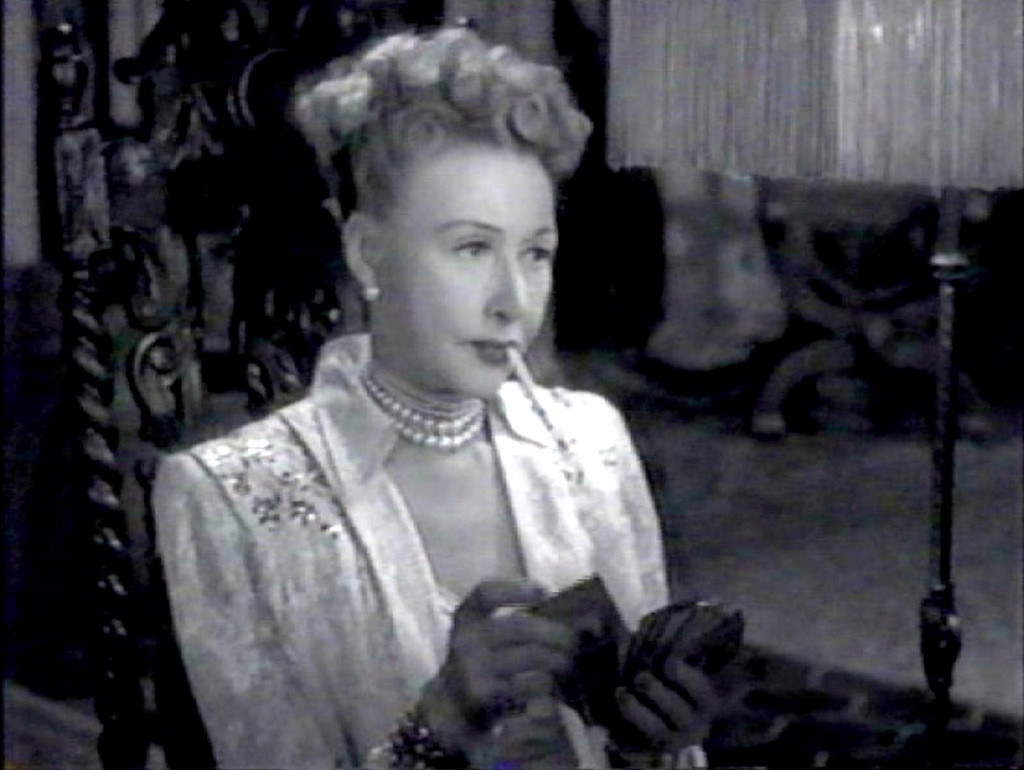 Remember Anna Q Nilsson? He still wore the ring she gave him all those years ago. The two Swedes had barely seen each other during the war, and ‘Beloved Anna Q’ was much changed. A horse riding accident rendered one leg a full six centimetres shorter than the other, and she needed a brace to walk. Unlike Nils, Anna had made shrewd investments and survived the stock market crash pretty comfortably. She had tried to persuade Nils to follow suit, but he was never the type to take good advice – one of the reasons she wouldn’t marry him. At their last meeting, just before he left for Philadelphia, Anna told Nils to fight back. Get in a Rolls Royce and do a tour of the biggest names. Tell them you’re staying your fond farewells before quitting the business. She guaranteed the directors would be snivelling at his door by morning. Nils only laughed. How about I get in a Rolls Royce and drive around telling everyone to shove it? he said.
Remember Anna Q Nilsson? He still wore the ring she gave him all those years ago. The two Swedes had barely seen each other during the war, and ‘Beloved Anna Q’ was much changed. A horse riding accident rendered one leg a full six centimetres shorter than the other, and she needed a brace to walk. Unlike Nils, Anna had made shrewd investments and survived the stock market crash pretty comfortably. She had tried to persuade Nils to follow suit, but he was never the type to take good advice – one of the reasons she wouldn’t marry him. At their last meeting, just before he left for Philadelphia, Anna told Nils to fight back. Get in a Rolls Royce and do a tour of the biggest names. Tell them you’re staying your fond farewells before quitting the business. She guaranteed the directors would be snivelling at his door by morning. Nils only laughed. How about I get in a Rolls Royce and drive around telling everyone to shove it? he said.
He didn’t call Anna when he laid out his sleeping pills. Instead he phoned a University tutor he knew casually: Margareta Olsen-Krensiski. He was sure she wouldn’t swoop in with optimism the way Anna would, and gave her some basic funeral instructions. Toss his ashes anywhere, he said. He didn’t care. And maybe pray for him. There was another way, Margareta said. Come with her back to Sweden. There was a shortage of older male actors there, and she knew a friendly Jewish family who would be happy to help him settle in. There was social security in Sweden, attitudes were more permissive. Did he not know actors received a pension there? The problem wasn’t him, it was America.
We have Margareta to thank for talking him down. Nils had always loved escaping, and suicide was an extension of that coping mechanism. So no, he didn’t overdose that night. He gave away almost everything he owned, put the essentials in a single suitcase, and turned his back on the nightmare merry-go-round.
But it’s not the end. Not yet.
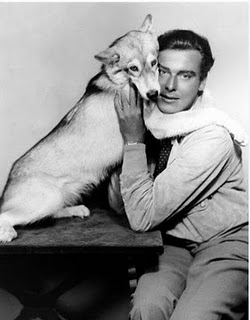 * I’m not saying Eddie Mannix definitely ordered the crime. I’m certain there were plenty of gangs out to extort money from gay actors, and with all the open secrets that kept Hollywood running, it couldn’t have been hard to pick a mark. But at the very least, Mannix laid the groundwork for violence in full knowledge of what might happen. If he was directly responsible, I wouldn’t be surprised in the least. The toad.
* I’m not saying Eddie Mannix definitely ordered the crime. I’m certain there were plenty of gangs out to extort money from gay actors, and with all the open secrets that kept Hollywood running, it couldn’t have been hard to pick a mark. But at the very least, Mannix laid the groundwork for violence in full knowledge of what might happen. If he was directly responsible, I wouldn’t be surprised in the least. The toad.
The Shadow Booth
I’ll be in volume 3 of The Shadow Booth this April along with some very fine people. Mine’s a prickly tale of blood and botany called The Cherry Cactus of Corsica.
Pre-order your copy, and have a look at the other volumes: http://www.theshadowbooth.com/p/store.html
A true tale for Halloween
Happy Halloween, ghouls and boils! A treat for patrons: a very strange experience I had a year ago + the 1930s tragedy I only found out about last night = the reason I was too spooked to go to bed.
Folklore Thursday: Teeth. Teeth. Teeth.
I have most of my baby teeth in a box somewhere. One of them took too long to wobble its way out of my mouth, so I used my mum’s car keys to gouge it out. I was a very metal seven-year-old. One by one, they ended up under my pillow in exchange for 20p from the Tooth Fairy, who was a tightfisted little madam in my household.
I don’t really know why I still have my teeth. I keep thinking I’ll make some jewellery out of them. You can’t just bin your own bodyparts, you know? But I’ve always liked teeth. The shape, the various colours, the way they feel, like little irregular pearls. And if you have a pearl, how do you tell if it’s real? Rub it against your tooth.
Teeth and the state of them are badges of age, class, and beauty. Our first tooth may end up in a keepsake box, and our last may help to identify us after death.
At the Wellcome Collection’s recent Teeth exhibition, I got up close with Victorian dental teaching dummies like eyeless Cenobites,1940s toothpaste ads featuring cheerful squirrels, and ancient hand-cranked drills reused in the power cuts of the ’70s. What big teeth you have, grandma. It’s little wonder that, as objects, teeth take on special qualities in the anxious netherworld of folklore.
Western dream dictionaries usually say a dream of losing one’s teeth is a manifestation of the fear of losing control, whereas the Chinese interpretation is that the dream heralds a sad event in the family. But in Maori folklore, if someone grinds their teeth during sleep, it is an omen of abundance for the community. To make a child’s teeth grow and put an end to teething pains, a charm would be recited:
An eel, a spiny back,
True indeed, indeed: true in sooth, in sooth.
You must eat the head
Of said spiny back.
One 1856 source tells of another Maori charm for teeth:
Growing kernel, grow,
Grow, that thou mayest arrive
To see the moon now full.
Come thou kernel,
Let the tooth of man
Be given to the rat
And the rat’s tooth
To the man.
And then there’s tooth worms. That pain in your gums, up until the 18th century, could be explained away by the presence of evil little worms. And it isn’t surprising when so many death historical certificates will simply list ‘teeth’ as cause of death that so many people – there are accounts of this even up until the 20th century – believed hideous burrowing monsters could sneak inside their mouths. Tooth worms could be smoked out with henbane, excised with a hard poke from a literal chopstick, or just yanked out. After all, exposed nerves do look a lot like worms.
Positioning of teeth in the mouth can denote character, a la physiognomy. Norweigian folklore has it that someone with teeth packed close together will never stray far from home. The USA took it one step further, that a man with teeth overlapping would always live with his mother.
Of course, if your teeth are bothering you and you wish to ask for help from someone other than a dentist, you could take a tin effigy of your offending peg to the local church. In South America and southern parts of Europe, you may come across churches festooned with these tiny offerings in the shapes of different body parts hanging from ribbons. More folk custom than strictly Christian, the sight of scores of these glistening Milagros is something you won’t forgot.
Teeth make good amulets. Queen Victoria kept a collection of tooth-set jewellery. Most of the pearly whites came from her children, but some were hunting trophies, including a gold necklace set with forty-four deer teeth, inscribed with dates of death and the words ‘all shot by Albert’. In nineteenth-century Bavaria, deer teeth on watch chains or pinned to the brim of hats were said to bring good luck to aspiring hunters.
These are a few of the toothy tidbits I collected while writing Pseudotooth. Throughout the novel, Aisling carries with her a rotted tooth she finds in her aunt’s cellar. It’s a talisman of sorts, tied to her fate as much to its previous owner’s. When we first meet Aisling, she is fully immersed in the sterile medical world. Aisling’s internal landscape is all wanderlust and scrapbook anthropology. She’s muddled; banished from her own body and her place in the world. The tooth felt like a fitting motif to take along with her. Teeth store information on our pasts. They can be weapons in times of desperation. But most of all, teeth – a single tooth – are incredibly intimate objects.
When Aisling feels the urge to tell the doctor about the witchdoctors of Tahiti who would take a shark’s tooth to release bad blood, of course, she doesn’t dare. She doesn’t exactly believe in it… but she doesn’t exactly not. Nothing in Aisling’s life is as simple as physical cause and effect. Like the tooth worms, the Milagros and the strange destiny of physiognomy, there are anxieties beneath the surface, bargains to be struck, and rhymes to be whispered when the road ahead is unclear.
The Fool’s Way V: Marriage And Other Punishments
Hej! Välkommen till min blogg. I’ve been haltingly translating movie star Nils Asther’s memoirs from Swedish, because who needs a social life, really? The fact that I understand only extremely basic Swedish hasn’t stopped me, as I’ve been going page-by-page with the surprisingly good Scan&Translate Pro app and the help of a few very patient Swedish friends.
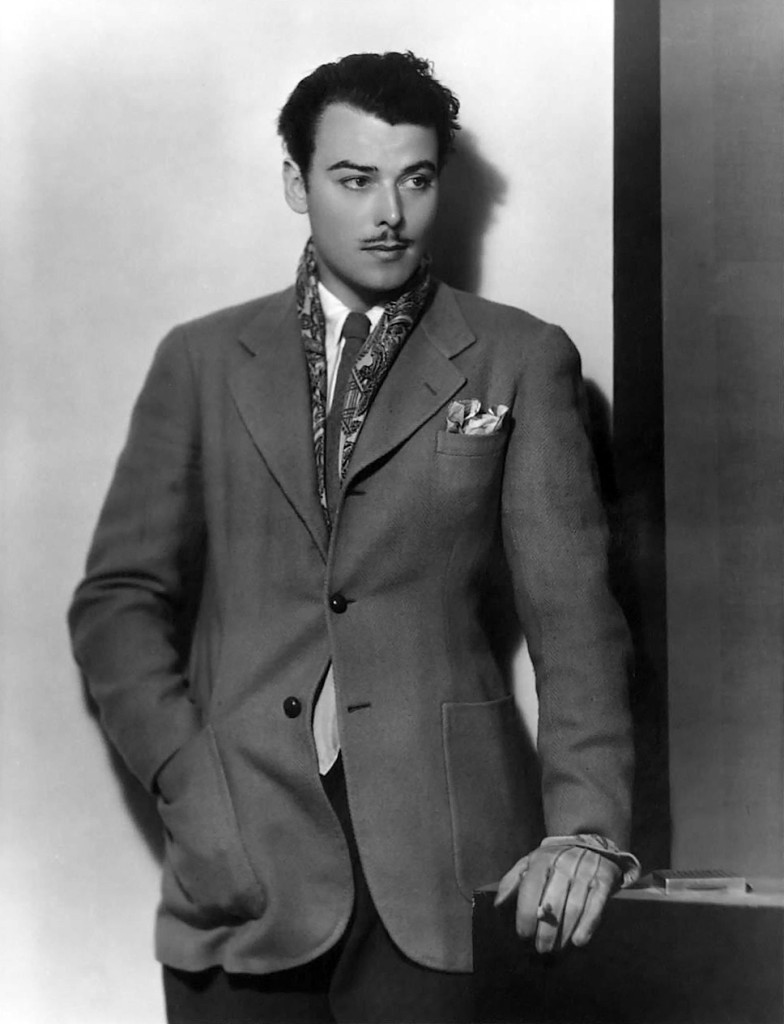 When we last saw the lovely Nils, he’d been having a gay old time in Hollywood. Though the roles required little more than standing around looking gorgeous, the money was pouring in, the fan mail was piling up, and the press adored his mysterious, intellectual, possibly-an-aristocrat-or-a-spy-who-cares-which persona. It was shallow and dumb, and as much as he sneered at it, it was fun.
When we last saw the lovely Nils, he’d been having a gay old time in Hollywood. Though the roles required little more than standing around looking gorgeous, the money was pouring in, the fan mail was piling up, and the press adored his mysterious, intellectual, possibly-an-aristocrat-or-a-spy-who-cares-which persona. It was shallow and dumb, and as much as he sneered at it, it was fun.
Enter Eddie Mannix, Hollywood fixer and all-round sentient turd. ‘A thug in a suit’, Mannix cleaned up the messes stars left behind: rapes, murders, suicides, and everything in between. If you were a 1930s Hollywood luminary and you’d just found a body in your swimming pool, you called Mannix, not the police. Mannix ran with the Mob, and he had a hand in more than a few suspicious deaths, including his own wife’s. He controlled press, police and coroners alike. If you defied him, you not only risked your career, but your neck.
Is this the face of a man with a soul? Nay. Nay and fie.
Part of Mannix’s job was to conceal the private lives of homosexual stars. During the 1920s, attitudes were more liberal within Hollywood, but as the thirties moved in, once successful and beloved figures began to disappear. Ferociously bisexual Nils was being watched.
Mannix was tasked with marrying Nils off. Early in his career, Nils had been in an Uncle Tom’s Cabin spinoff, Topsy and Eva, starring the vaudeville twins Vivian and Rosetta Duncan. The twins were wildly popular, but there was a snag – Rosetta was a known lesbian. The neat fix would be to hitch her to Nils, but Rosetta was not considered a beauty. The next best thing was Vivian. Tiny, blonde, and dimpled, Rosetta’s pretty twin would dispel the aura of scandal around the Duncans as well as their mysterious one-time co-star. If it was good enough for Mannix, it was good enough for the studio – if the actors complied.
If.
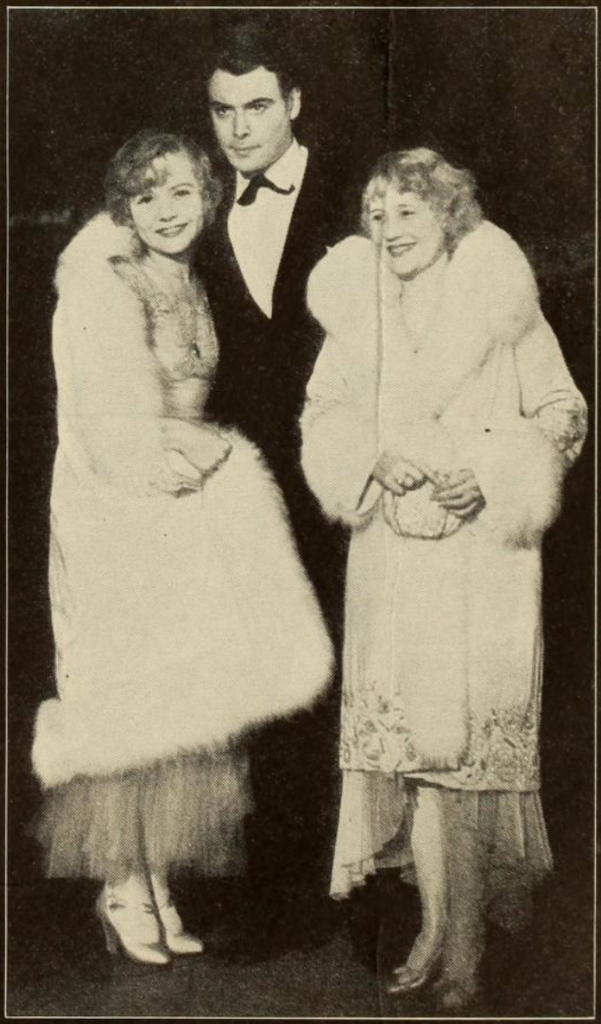 As we’ve seen, trying to tell Nils to behave was… a daring choice. He resisted the marriage for as long as he could. Years, in fact. The studios spun his stubbornness as an on-again-off-again love affair, a clash of American exuberance and Scandinavian… well, fjord-pining. Vivian joked they intended to keep the engagement chugging along until 1940. She held up her side of the bargain valiantly, no doubt concerned for her sister.
As we’ve seen, trying to tell Nils to behave was… a daring choice. He resisted the marriage for as long as he could. Years, in fact. The studios spun his stubbornness as an on-again-off-again love affair, a clash of American exuberance and Scandinavian… well, fjord-pining. Vivian joked they intended to keep the engagement chugging along until 1940. She held up her side of the bargain valiantly, no doubt concerned for her sister.
The studio responded by withholding roles. Fine, Nils said. He had enough money saved to support himself for years. He could open a grocery store if he felt like it. But going without work drove him slowly crazy. He found himself lying around, sketching self-harm fantasies all day. If he could disfigure himself, he thought, the studio would leave him alone.
But Nils was terrible with money. Having enjoyed the attentions of sugar daddies for so long, he took his attitude from The Rubaiyat of Omar Khayyam (which was incidentally one of his aliases): live life to the full and have no regrets. Which is fine, unless you’re living right after the great stock market crash of 1929. Nils’ savings bank was one of dozens who folded, losing him over $30,000. Without work, there was no way he could support himself in any meaningful sense. Mannix simply had to wait for who would blink first.
It was during this strange standoff that Louis B. Mayer paid for a spell in an upmarket psychiatric clinic for reasons Nils was not willing to write about. One wonders if it was one of the early twentieth century’s gay ‘cures’. Whatever it was, he came out just as depressed as ever. Might as well marry.
Before his wedding, Nils went on one last romantic retreat with Greta Garbo. Garbo was bisexual but discreet, so Mannix was happy to treat her with fond tolerance. They walked through the woods together by moonlight. For the third time, he expressed his deep regard for her. Perhaps as an official couple they could find some sort of happiness, or, more importantly, freedom – intellectual and artistic. But it wouldn’t work. Greta’s own marketing shtick was aloneness. When he took himself off to bed alone, saddened and silent, she crept in and gave him a cuddle. Soon they were giggling again like old comrades, but the situation was bleak. They both knew they were at the mercy of Mannix.
Vivian Duncan wasn’t having fun either. In public, her ex-boyfriend Rex Lease punched her in the face. The open secret of lavender marriage carried a stigma akin to prostitution. She had tried to get to know Nils – he taught her to ride horses, she dragged him to parties he hated – but they were fundamentally clashing personalities.
They married in Reno.
Garbo found the whole thing grimly hilarious. “You don’t even know which one you’re married to, do you?”
Then in 1931, to the studio’s relief, along came a beautiful baby. No one could deny who her father was.
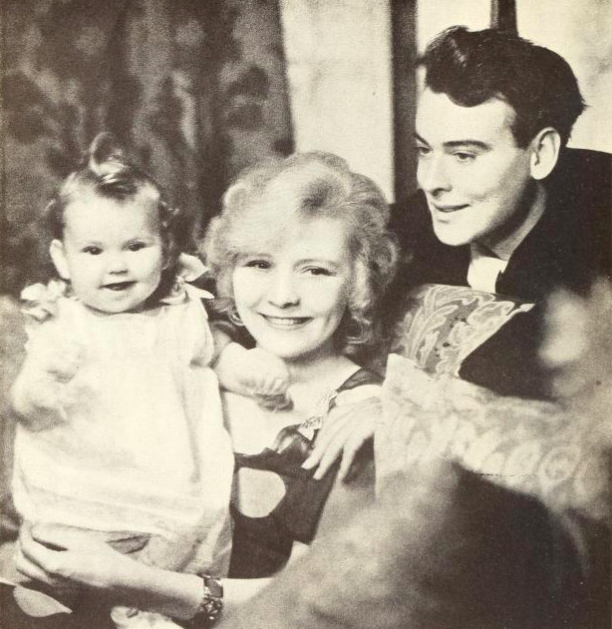 Look how pretty and desperately unhappy they all are.
Look how pretty and desperately unhappy they all are.
Little Evelyn grew up to raise guide dogs and horses in California. As a child, she was wheeled out as ‘The International Baby’, singing in vaudeville skits with her mum and aunt. It looks like she had no relationship with her father. In his autobiography he simply says “we had a child”. That’s it. Of Vivian he said “she only married me for the money”. He never mentions either of them again.
Having done his part by spawning an infant, Nils was no longer keeping up any pretence of being happy, stable or straight. The press were fed quotes about him adoring his vivacious wife while loathing the media’s interference. “It cheapens our love,” said someone who sounds nothing like Nils. “I love her still, and yet…I am a bad character…”
Okay, that last bit does sound like him.
By 1933, pretty boys were going out of style. Leading men needed to be ‘rugged’, ie) straight-coded, and Nils’ refusal to hide his dalliances with men rankled the wrong people. Eddie Mannix gave the press the go-ahead to drop unsubtle hints about Nils’ private life. Why did he not live with his beautiful wife? What secret was he hiding? All the gossip columnists knew what that meant. They’d rooted out queers before, here was the latest.
The punishment continued. The studio passed him over for all but the lousiest roles (fighting a mutant sting ray – a mutant sting ray – being one of them), forcing him to go on a vaudeville tour with the Duncans out of sheer poverty.
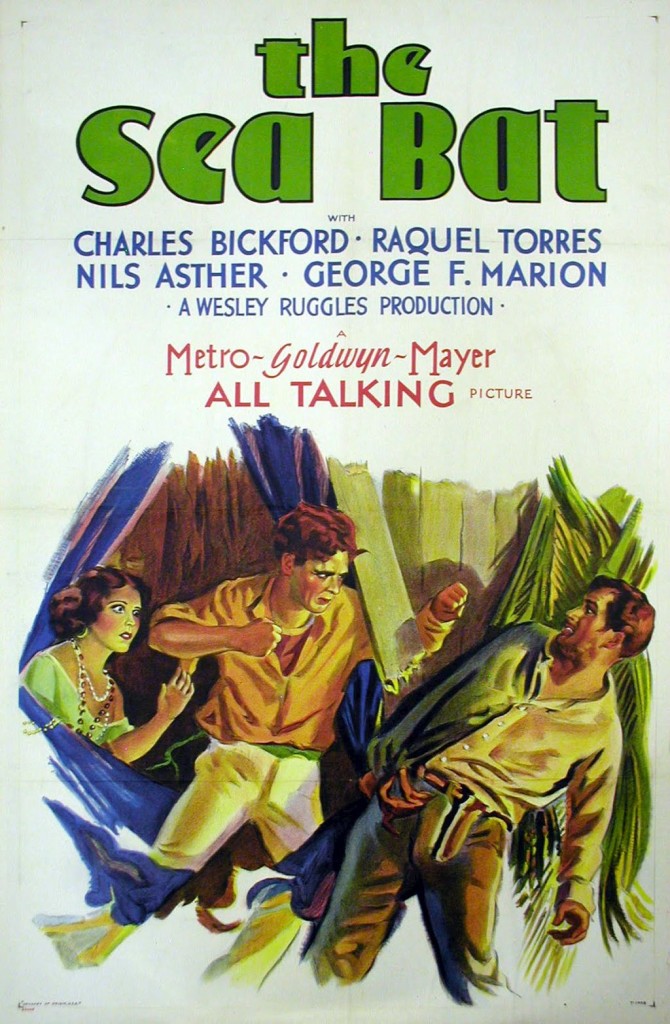 “But I am not mysterious,” he protested in Screenland Magazine. “I have not a secret in the world. I come, I do my work, go home. I have my friends. I never hide anything I do. I think people make up things to guess about me, then say I am mysterious when it is a really they. I am just a young Swede trying to get along.”
“But I am not mysterious,” he protested in Screenland Magazine. “I have not a secret in the world. I come, I do my work, go home. I have my friends. I never hide anything I do. I think people make up things to guess about me, then say I am mysterious when it is a really they. I am just a young Swede trying to get along.”
By the end of 1933, he all but vanishes from the movie magazines that once praised his every move. He was blacklisted for ‘breaking contract’, ‘unacceptable foreign accent’, and ‘visa problems’ variously. He and Vivian divorced.
And then General Yen happened.
(If you don’t already know the film, here’s an advance warning for yellowface.)
Their forbidden love wrecked an Empire! Frank Capra had a vision. A love story like no other, smashing taboos and shaking up the audience as much as the characters. War, sex, religion, race, and downright double-crossing peril. There was one problem. Cinematic code of the time meant you couldn’t depict a love story between two people of different races. However – there was a loophole. The rule only stipulated actors, not characters. An interracial love story was permitted so long as both actors were white.
Capra wanted a tall, imposing Chinese actor to play the General, but that wasn’t possible. In Nils’ tranquil disposition, Capra said he could see the wisdom of an ancient empire. (Steady on, Frank). As for the rest, Nils already had slightly slanted eyes and high cheekbones, so the makeup artists only had to enhance these features*. There’s a short documentary showing the transformation here. They trimmed his long eyelashes, resulting in painful surface burns from the studio lights. He was in real danger of losing his sight, but he never complained. He was just pleased to be doing something that didn’t involve a mutant sting ray.
Yes, it’s uncomfortable to watch. Though they did their best to avoid the grotesque charactures that had come before – and there were many – it’s still yellowface. Barbara Stanwyck’s character, a respectable Christian missionary, realises she holds deeply racist beliefs incompatible with her faith. Worse, she – a married woman – is in love with a foreign warlord. Instead of fighting her attraction, she accepts it, returning to her life among white people changed, disturbed, bereft. Yen himself is charming, cultured, and challenges his leading lady on her hypocrisy. Capra expected an Oscar for what he saw as his magnum opus, but it wasn’t to be. Can love survive such ground-in prejudice? A significant portion of the audience couldn’t care less. Complaints came rolling in.
Young women, however, were into it. The press silence was broken by letters demanding to know when they would see Mr Asther again. Interviews followed, some openly accusing the Duncan sisters of blowing their chances with this ideal piece of husband material. It was their fault he’d disappeared from public life.
He seemed so healthy, so happy, so pleased to chat, said reporters. Was he in love?
Nils smirked.
You need to remember that smirk. Because so did Eddie Mannix.
* Quick note: Nils actually claimed he came up with the makeup techniques for General Yen. Take it with as big a pinch of salt as you wish, but he wrote how he’d spend his days off in Chinatown, making sketches of his acquaintances there. Then, at home, he’d try to modify his eyelids in a more realistic manner than Hollywood’s usual ‘just tape them up, who cares’ method.
The Fool’s Way IV: The Spy Who Laughed At My Bald Spot
Hello, and welcome to my continuing dive into the world of 1920s and ’30s Hollywood with Nils Asther’s memoirs. It’s all getting a bit out of hand, because I’m deliberately learning Swedish now.
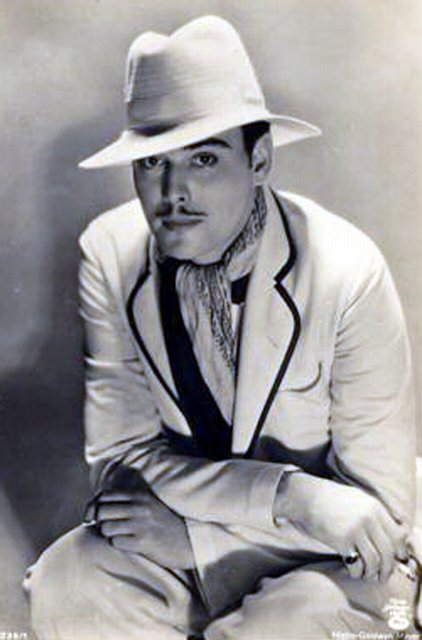 When we last saw Nils, he was heading for Hollywood for either the time of his life or an unmitigated nightmare, depending on who you believe; Nils, or the people who sent him there.
When we last saw Nils, he was heading for Hollywood for either the time of his life or an unmitigated nightmare, depending on who you believe; Nils, or the people who sent him there.
Crafting a persona for a new star must have been terrific fun, because you could pluck any old rubbish out of the air and just go with it. Fresh off the boat, Hollywood took one look at Nils Asther and said “SPY!”
Nils was given a history of daring missions to Russia, flying over Finland under cover of darkness for tea with his best buddy, Lenin. He was an international skiing champion (that was how he was spotted by Mauritz Stiller, definitely not a creepy pickup in a bar) and his father, far from being just another sadistic businessman, was the scion of one of the oldest aristocratic houses of Sweden. The American press were keen to point out Nils struggled with English (he was fluent in four languages, but foreigners, am I right?) and new fans were warned they may have to look up Stockholm on a map. He had never been in love. Being in love was incompatible with Nordic self-control, so he only let his passions fly in front of the camera. This description, from a 1929 edition of Photoplay, is really something: “Nils Asther, as melancholy as a Swedish herring and about as animated as the Rock of Gibraltar, has no use for the average woman. He is not one to flit (imagine Nils flitting) from flower to flower.”
Hjalmar Bergman would have wet himself.

Behind the scenes, things were less dramatic. His first meeting with an exec was an experience for everyone involved. Nils wasn’t as thin as he looked in his photographs. “Very probably. On the way here, I spent all your money on sweets.” His hair was too long. American men didn’t have long hair. Nils had already guessed that – he let his eyes travel openly over the American’s bald head. His expenses reciepts were unacceptable. Nils sprinkled them on the floor.
There were no singing children there to greet him, Nils noted wryly. Hollywood was boring. Studios were like contained towns, housing thousands of people, all equally unhappy. Outside, it was a cultural desert. Hardly any theatres, no concert halls, and definitely no opera houses, though there was a building in the shape of a giant teapot. Worse, everyone was unrelentingly cheerful. One culture shock for Nils was that when someone said “How are you?” he wasn’t expected to respond with something along the lines of “I’m unhappy and hungover and I hate this place, how do you stand it?”
It’s no surprise he earned a reputation as difficult. And when a waiter was French, he would speak to him in French. Highly suspicious.
When you have a star who calls a spade a spade and then hits you with it, you can’t allow him to speak for himself in the press. So you get ‘interviews’ like this:
 This is the man who spiced up a dull evening with Garbo by putting a banana down his pants and waiting for her to notice, but okay, hello darkness my old friend.
This is the man who spiced up a dull evening with Garbo by putting a banana down his pants and waiting for her to notice, but okay, hello darkness my old friend.
The town was tedious, waiting around for a role was frustrating, and when a film did come along, it was a sentimental romance where Nils was expected to stand there looking pretty while the Duncan sisters capered around in blackface. He looked at ships back to Sweden. But then he was offered the role of Kit in Sorrel and Son. Anna Q. Nilsson, a fellow Swede once called the most beautiful woman in the world, would play his mother. The shipping timetable went in the bin. He’d never been able to resist an older woman.
Their open relationship was the longest and probably the healthiest Nils ever had. But when he suggested they marry, Anna was already wise to him. He wasn’t husband material. For one thing, in his own words, he would jump into bed with any man or woman who asked nicely. But she loved him all the same. The ring you see on his little finger in most photographs is an emerald from Anna, engraved ‘a sign you are my lover’. Throughout his tumultuous time in Hollywood, Anna would comfort Nils, rescue him, and even understand him. Not many did.
Sorrel and Son was a hit. Two films opposite Garbo followed: Wild Orchids and The Single Standard. You can watch them here – just search for Nils Asther. And they really are great fun. The chemistry between the leads is real, and The Single Standard explores some surprisingly feminist issues, like independence and integrity and falling in love with someone with a really silly name.
Roles came pouring in. Most were the ‘pretty boys in uniform’ bits Nils found dull, but they were alongside hugely famous leading ladies (and Lon Cheney), and the fans lapped them up. Charlie Chaplin admired his comedy turns and wanted to collaborate. He was receiving literal crates of fan mail, which he endeavoured to respond to personally until it became impossible. Take that, Dad.
Nils was defiantly indiscreet about his love life. At one point, he was literally on call for liaisons. Kay Francis, frustrated with her ailing marriage, comforted herself by visiting Nils in his dressing room for kisses. Joan Crawford wanted a baby – guess who she turned to for help. This was all manageable for the studio, who wanted family-friendly, clean-cut leading men and would do anything to preserve that facade. They’d already crafted a persona for Nils that was mysterious, intellectual and impenetrably foreign. But when he was happy to joke with Garbo in front of entire film crews about roughing it up with sailor boyfriends, he garnered the wrong sort of attention.
Enter Eddie Mannix, Hollywood fixer, gangster, and all-round sentient turd.
I’m not looking forward to this.
A giveaway for Saturnalia
My novella Beauty Secrets of The Martyrs is two years old, which in human terms means it’s toddling around, screaming, and sticking its fingers into electrical sockets. Happy birthday, Silvan. Raine Szramski has made this gorgeous picture of him at work, prettifying the revered dead.
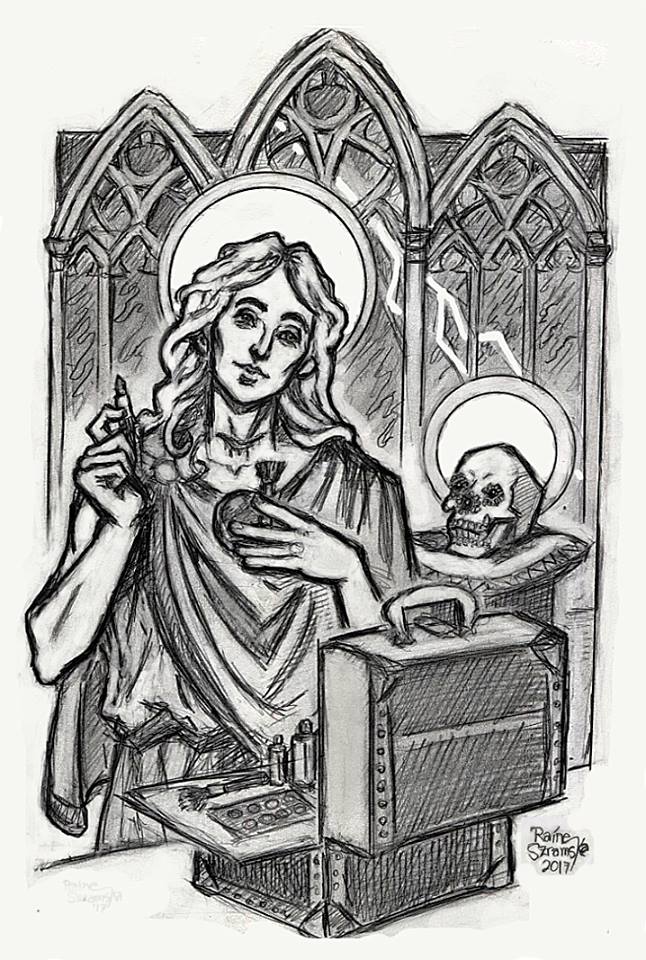
To celebrate Saturnalia, Silvan’s least favourite Roman holiday, I’m giving away a copy to UK readers. It’s just a couple of clicks to enter. Good luck!
Goodreads Book Giveaway
Beauty Secrets of the Martyrs
by Verity Holloway
Giveaway ends December 31, 2017.
See the giveaway details
at Goodreads.
Half-Crazy, Spewing, Low-Bred Gentlemen of Note
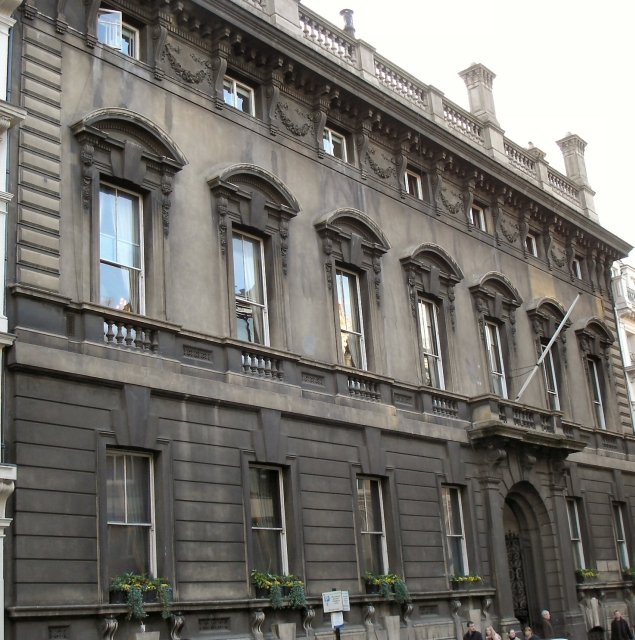 The Garrick Club of Covent Garden is one of the oldest members’ clubs in the world, playing host to such artistic luminaries as Laurence Olivier, Charles Dickens, A.A. Milne, and my own dear Dante Gabriel Rossetti, who generally couldn’t be bothered to turn up until everyone else was half-asleep. Today, the waiting list is supposedly seven years long. New members must be proposed by existing ones. Objectionable men may be admitted, but no bores.
The Garrick Club of Covent Garden is one of the oldest members’ clubs in the world, playing host to such artistic luminaries as Laurence Olivier, Charles Dickens, A.A. Milne, and my own dear Dante Gabriel Rossetti, who generally couldn’t be bothered to turn up until everyone else was half-asleep. Today, the waiting list is supposedly seven years long. New members must be proposed by existing ones. Objectionable men may be admitted, but no bores.
I was lucky enough to come across a stained old member’s list, compiled by the Reverend R.H. Barham and printed privately in 1898, long after his death. Why was it only published after his death, you wonder?
You’ll see.
The name Reverend Barham may not ring a bell, but his pseudonym Thomas Ingoldsby might. Ingoldsby was the author of a collection of myths, ghost stories, and poems based on – and often parodying – real medieval tales.The Ingoldsby Legends were hugely popular from the late 1830s, and Barham became one of the original members of the Garrick Club, where “actors and men of refinement” could mingle and connive into the wee hours.
Even half a century after his death, Barham’s family did not wish for the Reverend’s private list of Club members, their foibles and indiscretions to ever be published. Indeed, the eventual publishers printed only 240 copies in New York, because to publish in Britain would be “an offence against good taste”.
So without further ado, here are a few notable Club members, from Barham’s own private burn book.
Adolphus, John, Esq., F.S.A., Barrister
He was a man full of anecdote, but occasionally very rude, which made him, although very eloquent, also a very unpopular member at the Bar, and unquestionably prevented his rising to the highest rank in his profession.
Allen, Viscount
Commonly called ‘Cantankerous Allen’ from a slight twist in his temper.
A regular scamp. Having spent every shilling he was worth while Captain Anstruther, he was at dinner on bread and cheese with half a pint of porter, at the Brown Bear, a flash house in Bow Street, when he saw in the paper the death of his cousin, the young baronet, who was killed by some accident while a boy at Eton. This event gave him a baronetcy and an entailed estate of several thousand a year, all of which that he could touch was gone in less than two years.
Arnold, Samuel James, Esq.
I saw him the morning after his theatre was burnt down, by which he lost £60,000, and never saw a man meet misfortune with such equanimity. He was one of the leading members of the Beef Steak Club, where he was called The Bishop and used to say a mock (but not profane) grace in a large white mitre. Latterly he took to drinking spirits and water till he became quite a sot.
Beazley, Samuel, Esq.
He was the only bearable punster I ever knew.
Beloe, William Rix, Esq.
In 1834, while preparing for a day’s pheasant shooting at the country house of Cartwright the dentist, and drying his gunpowder, an officious servant with a candle ignited it and blew him up, in consequence of which he was obliged to submit to the amputation of his right arm.
Bidwell, Woodward, Esq.
A gentlemanly, good-humoured man, but ultra Tory in his politics, which he was always talking about.
Blood, Michael, Esq.
A surgeon of Mount Street, Gosvenor Square and one of the sweetest as well as most scientific amateur singers I ever heard.
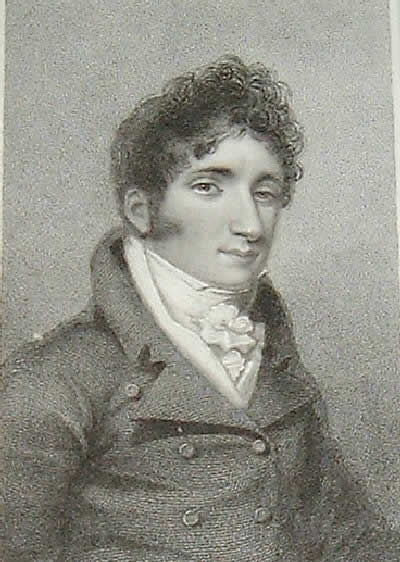 Braham, John, Esq.
Braham, John, Esq.
The celebrated singer. I more than once met Braham at his house, and once had nearly offended him by a villainous pun. He had drank too much and began boasting of his amorous successes. “I must be candid,” he said. “I am always hunting the girls.” “No wonder you have so fine a voice, as by your own account you are candied horehound personified.”
Calcraft, Granby, Esq., M.P.
He married Miss Love the actress, but it is said he was never admitted to the privileges of a husband by his wife, who very soon after the wedding eloped with Lord Harborough, by whom she afterwards had two children.
Carlton, The Hon. R.
A clergyman, and apparently half-crazy.
Darby, Elde, Esq.
The brother-in-law of Lord Allen, with whom he was at feud. He was much abused by he Satirist newspaper and taxed with having been a government spy receiving douceurs from both parties. He had lived long in France and in conversation frequently affected to have forgotten his English.
De Roos, Lord
A man very much liked and very popular, but being convicted of cheating at whist and marking the cards got out of society. Lord Chesterfield saying after the trial that he had called upon him nevertheless and left his card, “Did he mark it?” asked Hook. “No!” said my Lord fiercely. “Of course not,” said Poole, “he did not consider it an honour.”
Douglas, Joseph, Esq., Barrister
A member of the Committee and a very gentlemanly man, but fond of the bottle. Used to go to the Northern Circuit and sing Northern songs – after a fashion.
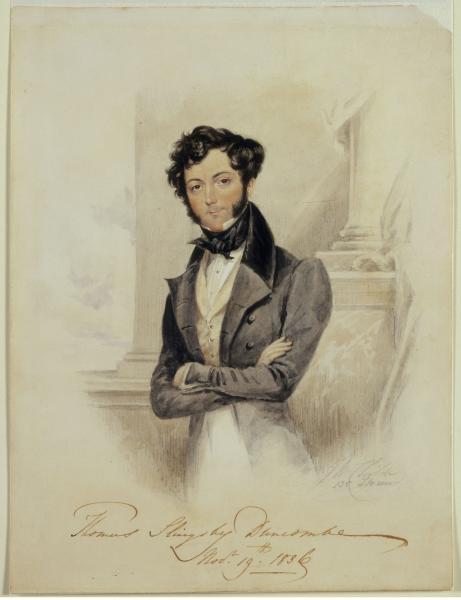 Duncombe, Thomas S., Esq., M.P.
Duncombe, Thomas S., Esq., M.P.
Feb 15th, 1833. Mr Duncombe was behind the scenes at Drury Lane when Mister Westmacott, the proprietor of the Age, Sunday paper, came up to him and asked him how he did. “I am surprised, sir, that you should think of addressing me when you are abusing me constantly in your paper, and I desire that when you do speak to me you will take off your hat.” At the same time he himself removed W’s hat from his head and threw it on the ground. W drew off his gloves on which D clenched his fists and struck him twice on the face, when the persons present interfered
Ellis, Charles, Esq.
A half mad attorney, who was constantly drunk and as constantly quarrelsome, though very good natured during his few intervals of sobriety.
Foster, John
A low scribbler, without an atom of talent and totally unused to the society of gentlemen. He narrowly escaped expulsion from publishing an account of a dinner at the Garrick in a newspaper to which he was a reporter. The Committee wrote him a letter on the occasion expressive of their disgust which would have caused any other man to retire. About a year after, he got beastly drunk and was sick in Sergeant Talfourd’s pocket. Tom Duncombe got drunk at the same time, but behaved so differently that Poole observed one was the real gentleman drunk and the other the ‘spewrious’ gentleman drunk.
Gaspey, Thomas, Esq.
Proprietor and editor of the Sunday Times newspaper. A low-bred, vulgar man brought in by Jerdan.
Gordon, Robert, Esq., M.P.
Commonly, B–m Gordon.
The celebrated duellist.
Mulgrave, Earl of
President of the Club. In 1834 he went Lord Lieutenant to Ireland, having previously been Governor of Jamaica, whence he sent the Club a turtle.
Osbourne, Frederick K., Esq., Barrister
A very disagreeable, overbearing, rude man, and generally cut on the Circuit.
Sheridan, Richard Brinsley, Esq.
Ran away with Miss Grant, daughter of Sir Colquhon Grant.
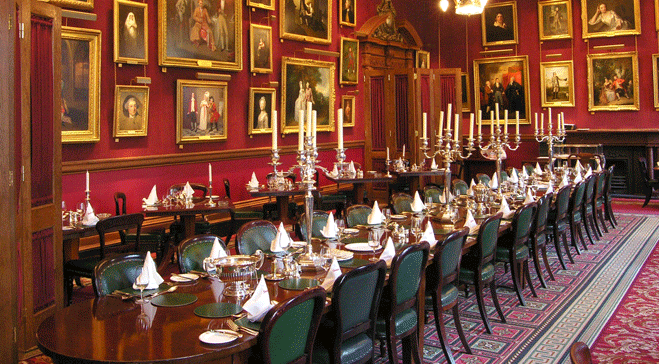 Men of refinement, indeed. Who’s your favourite?
Men of refinement, indeed. Who’s your favourite?




